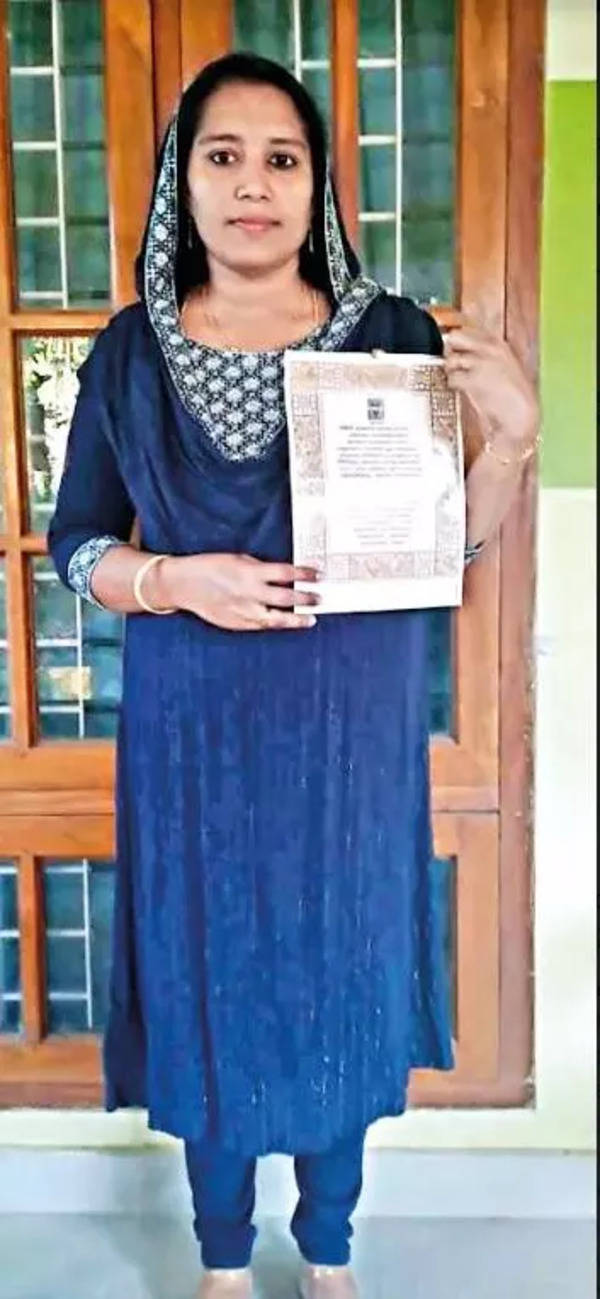[ad_1]
Much like how caste is a birth lottery, the fake caste categories were decided by lottery in the classroom. Black, red, green and blue were the colour codes. The black-chit winners were the most powerful. They could have unlimited candies. They had the right to a lunch break and free speech. The children who got blue chits had the fewest privileges.
Now, came the test. The children with the black chits were asked how they wanted to help their blue-chit classmates.
Nine-year-old Shailendra, who was among the black-chit kids, walked up to a green board and started scribbling: ‘I will share my lunch with my blue friends.’
The mock demonstration on caste was one of Teach For India’s (TFI) attempts at teaching children the ideals enshrined in the Constitution and the Preamble. Such experiments are on in 50 classrooms across the country. The non-profit hopes to reach 1,00,000 students this year. “This programme does not take the traditional route of ‘oh, let’s come together and read the Constitution or the Preamble’. It takes a deeper route in the sense of what kind of individual you need to be to become an active citizen,” Radhika Khurana, curriculum designer of ‘India and I’ studies at TFI, says.

Regi NR, a homemaker from Kollam district, recently aced a Constitution exam
The Kollam Test
Before the 75th Republic Day, there are several attempts to bring the Constitution alive in the lives of Indians. In Kerala’s Kollam, one such experiment started last year and Regi NR was declared its winner.
Regi, a mother of two, lives in the Chithara gram panchayat in Kollam. Her husband is a driver in Saudi Arabia. “Often during video calls with my husband, I jokingly quote equal rights from Article 14 of the Constitution whenever he tells me not to do this or that,” she laughs.
Regi knows the Constitution better than many. In 2022, as a part of a government campaign to make Kollam a “Constitution-literate district,” Regi sat for a Constitution exam and bagged the first prize in her panchayat.
“I would initially get confused between the different article numbers,” says Regi, who won a refrigerator and a citation for her efforts.
Chithara is the only gram panchayat in Kollam district to conduct an exam of this nature. “Seventy-five years of Independence have already gone by. Everybody needs to be aware of the Constitution. It is above all holy books,” says Binun Waheed, Kollam district panchayat secretary.
In Rajasthan, the state government has made the reading of the Preamble mandatory during morning prayer in schools. Girdhar Singh, principal of Malpura Government School, near Tonk, feels it has made an impact. “One student stands on the stage and others repeat the Preamble after him. Their love and respect have gone up for the Constitution,” Singh says. “There is no acrimony between Hindu and Muslim students here. They sit and eat and read and pray together,” he says.
Singing the Preamble
Unlike Regi and Singh, Ritesh Gohiya’s effort to teach the Constitution was not initiated by any government.
Gohiya, a music composer in Madhya Pradesh, created a space called Folk Studio that makes songs on the Indian Constitution. Located 150 km from Bhopal in Harda district, this studio has made 16 songs that are now used by NGOs, schools and coaching classes to help students memorise the Constitution for exams. One of their popular numbers is the ‘Preamble song’.
The 39-year-old says: “When we started the music studio, some artistes mocked us, saying no one would understand or care about music inspired by citizenship or the Preamble. Now look at us. We are booked for performances in Bhopal, Lucknow, Vadodara and more.” Shedo, an organisation Gohiya founded, is part of the national campaign Har Dil Mein Samvidhan, which started on January 15.
The campaign, which seeks to popularise the Constitution, will cover 15 states and 185 districts. “All partners unpacking each word of the Preamble, or rights and duties in simple everyday terms,” says Vinita Gursahani Singh, a trustee at We, The People Abhiyan that is a part of the Har Dil Mein Samvidhan campaign.
Ujjwal Kumar Singh, an author and senior political science professor in the University of Delhi, says an effort to create consciousness around the Constitution was needed. “Dejargonising is not what we are driving at. Every word in the Constitution is carefully placed. But when constitutional values enter families, communities, and individuals through these initiatives, it opens up spaces otherwise abandoned to the state,” he says.
[ad_2]
Source link


